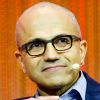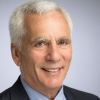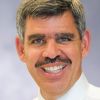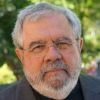13 Political Economy Books That Shape Understanding and Policy
Recommended by Satya Nadella, Mona Seif, and Jared Bernstein for Political Economy insights







What if much of what you think about economics is only part of the story? Political economy explores the tangled web where politics, economics, and society collide, shaping policies that affect millions. At a time when economic inequality, climate change, and global crises dominate headlines, understanding this field is more urgent than ever.
Leaders like Satya Nadella, CEO of Microsoft, have turned to foundational works such as The Great Transformation to grasp the deep forces behind markets and society. Activists like Mona Seif find clarity in Yanis Varoufakis's Talking To My Daughter, which breaks down economic complexities with personal insight. Economists like Jared Bernstein draw on Robert Skidelsky's Money and Government to rethink the state's role in economic life.
While these expert-curated books provide proven frameworks, readers seeking tailored knowledge based on their background, interests, and goals might consider creating a personalized Political Economy book that builds on these insights for a focused learning journey.
Recommended by Mariana Mazzucato
UCL professor and Institute for Innovation director
“Kelton's game-changing book on the myths around government deficits is both theoretically rigorous and empirically entertaining. It reminds us that money is not limited, only our imagination of what to do with it. After you read it you will never think of the public purse as a household economy again. Read it!” (from Amazon)
by Stephanie Kelton··You?
by Stephanie Kelton··You?
What if everything you knew about government deficits was wrong? Stephanie Kelton, a former chief economist for the U.S. Senate Budget Committee and a professor at Stony Brook University, challenges conventional fiscal wisdom by exploring modern monetary theory (MMT). You’ll gain insights into how federal spending really works, debunking myths that deficits are inherently harmful or that government budgets should mimic household finances. Chapters detail how MMT can reshape approaches to poverty, healthcare, climate change, and infrastructure by reframing money and deficit concepts. This book suits anyone interested in economics, policy reform, or understanding the financial levers shaping society, though it demands a willingness to rethink long-held beliefs.
Recommended by Jared Bernstein
Senior Fellow, Center on Budget and Policy Priorities
“As I’m deeply ensconced in @rskidelsky’s excellent book—one of the best discussions of where we are in economic thought and policy, how we got here, and where we should go next—I just took a lovely walk w this podcast.” (from X)
by Robert Skidelsky··You?
by Robert Skidelsky··You?
Robert Skidelsky, emeritus professor of political economy and a leading biographer of John Maynard Keynes, challenges the conventional wisdom that government and money should play a minor role in economic life. Instead, he argues that uncertainty makes them essential to any market economy, revisiting Keynes’s insights for today’s context. You’ll gain a nuanced understanding of economic cycles, monetary policy, and the interplay between government intervention and market forces, especially through detailed historical analysis from the Great Depression to the 2008 financial crisis. This book suits you if you want to grasp how economic theories have evolved and why rethinking the state's role remains critical.
by TailoredRead AI·
This tailored book on political economy offers a unique exploration designed to match your background, interests, and specific goals. It reveals the intricate relationships between politics, economics, and society, providing a personalized pathway through complex concepts and debates. By focusing on your priorities, this book synthesizes key theories and real-world applications, making the study of political economy accessible and deeply relevant to your particular perspective. The content covers foundational topics such as economic systems and policy impacts, while also delving into specialized areas like governance, inequality, and global markets. This personalized approach ensures that your learning experience is both comprehensive and directly aligned with what you aim to understand and achieve in the field.
by Yanis Varoufakis··You?
by Yanis Varoufakis··You?
Drawing from his experience as Greece’s finance minister and a seasoned economist, Yanis Varoufakis crafts a series of letters to his daughter that unpack the complex workings of the global economy in straightforward terms. You learn about the historical roots of economic inequality, the roles of politicians and bankers, and why market-driven policies often fail to address systemic risks and environmental decline. The book challenges the notion that everything has a price, encouraging you to question economic orthodoxies and consider democratic alternatives. Varoufakis's approach combines personal storytelling with incisive critique, making economic concepts accessible without oversimplification, especially in chapters that dissect crises and inequality.
Recommended by Satya Nadella
CEO of Microsoft
When Karl Polanyi first examined the upheavals of the Industrial Revolution, he uncovered how the rise of a self-regulating market disrupted not just economies but social structures. This book dives into the political and economic shifts that shaped modern capitalism, revealing the tensions between market forces and social protection. You’ll explore Polanyi’s critique of unrestrained market capitalism and its social consequences, especially as globalization intensifies. The detailed analysis in chapters like the "Double Movement" offers insight into how societies react to economic change. If you want to understand the roots of today’s economic policies and their social impact, this book offers a thoughtful, historical perspective.
Recommended by Jeffrey Lewis
Professor at Middlebury Institute of International Studies
“This classic text’s updated new edition provides a comprehensive introduction to the theories, structures, and debates that today’s world economy revolves around. Refined and carefully curated to sample cutting issues such as rising populism, illicit trade, climate change, and cyber warfare, the authors strike an impressive balance in showing both the order and tumult that characterizes today’s IPE in a way few texts are able to deliver.” (from Amazon)
by David N. Balaam, Bradford Dillman··You?
by David N. Balaam, Bradford Dillman··You?
David N. Balaam and Bradford Dillman bring decades of academic experience in international political economy to this seventh edition, which thoroughly updates their analysis of the postwar global order. You’ll find detailed explorations of key theories, institutions, and global issues—from Brexit and populism to climate change and cyber warfare—that shape today’s interconnected economy. The book’s chapters, including new ones on constructivism and global health, help you critically assess how political, economic, and social forces impact both nations and individuals. This text is ideal if you want rigorous insight into international economic dynamics but isn’t suited for those seeking a purely introductory or casual overview.
This personalized book explores political economy through a focused lens tailored to your background and goals. It covers core concepts and advanced topics alike, revealing how political and economic forces interact to shape policies and societies. The content matches your interests, guiding you step-by-step through essential theories and real-world applications that illuminate complex dynamics. By tailoring the material to your specific learning objectives, it fosters a deeper understanding and faster mastery of political economy’s key principles and contemporary challenges. The book examines diverse perspectives and practical examples, making this tailored experience both engaging and empowering for your study journey.
Recommended by Ivan Krastev
Political scientist, liberal strategies expert
“Populism is the big topic in political science now. The study of the latest re-emergence of populist parties and leaders has managed to attract some of the most talented young scholars. In this rigorously researched book Petar Stankov offers an original theory of populist cycles, focusing on identity, economy and societal fairness. In addition, he offers empirical explanations of those cycles and valuable insights into the consequences of populist governance.” (from Amazon)
by Petar Stankov··You?
by Petar Stankov··You?
Petar Stankov, blending his academic roles at Royal Holloway and the University of National and World Economy, digs into how identity and economic inequality fuel populist movements. You’ll explore detailed analyses of populist voting patterns from the 20th century onward, supported by data on incumbencies and macroeconomic trends. The book examines how political entrepreneurs exploit societal divisions, especially during economic shocks, to gain power, with case studies spanning Latin America, Europe, and OECD countries. If you’re keen on understanding the mechanisms behind populist governance and its fiscal and monetary policy impacts, this concise work provides a focused lens on those dynamics.
Recommended by The Sunday Times (UK)
“A lively, accessible and provocative book.” (from Amazon)
by Ha-Joon Chang··You?
by Ha-Joon Chang··You?
What if much of what you believed about capitalism was misleading? Ha-Joon Chang, a Cambridge economist, challenges the dominant free-market narrative by exposing overlooked truths that shape global economies. You’ll learn why markets aren’t truly "free," how technology like the washing machine transformed society more than the internet, and why enriching the wealthy doesn’t necessarily benefit everyone. Chapters like "How to Rebuild the World" offer a vision for a capitalism oriented toward humane goals rather than pure market efficiency. This book suits you if you're questioning economic orthodoxies and want a more nuanced grasp of capitalism’s real workings.
by Thomas Oatley··You?
by Thomas Oatley··You?
Drawing from his role as Corasaniti-Zondorak Chair of International Politics at Tulane University, Thomas Oatley presents a nuanced view of global economic dynamics as a political contest producing clear winners and losers. You’ll gain insight into how state and non-state actors navigate wealth and power within the framework of domestic and international politics, highlighted by contemporary case studies such as Brexit and the Trump administration’s trade policies. The text breaks down complex economic concepts and international institutions, helping you critically assess how economic policies emerge amid globalization’s pressures. This book suits those seeking a thoughtful introduction to international political economy without requiring deep prior knowledge in economics or political theory.
Recommended by Diane Coyle
Bennett Professor of Public Policy, University of Cambridge
“This book brings some much-needed clarity and rigor to the analysis of public policy: What are the aims of policy, what are the inescapable dilemmas and trade-offs, and what are the pitfalls in government action? Above all, its essential message is that effective policy analysis is impossible without taking account of the political realities and the difficulties of implementation.” (from Amazon)
by Ethan Bueno de Mesquita··You?
by Ethan Bueno de Mesquita··You?
Drawing from his extensive background in game theory and political science, Ethan Bueno de Mesquita crafted this textbook to clarify the complex interplay between political forces and policymaking. You learn to navigate the normative foundations of policy, including social choice and political theory, alongside models that reveal how social dilemmas shape government decisions. The book’s chapters on externalities and coordination problems, enriched with empirical case studies, equip you to understand real-world policy challenges through a political economy lens. If you’re a student or professional looking to grasp the political constraints behind policy outcomes, this text offers a cohesive framework without oversimplifying the stakes.
by Theodore H. Cohn, Anil Hira··You?
by Theodore H. Cohn, Anil Hira··You?
What happens when seasoned political scientists examine the shifting currents of global economics? Theodore H. Cohn and Anil Hira bring decades of academic rigor from Simon Fraser University to unpack complex issues like US-China trade tensions, Brexit, and the rise of populism. You’ll gain a nuanced understanding of how political decisions intertwine with economic outcomes, from the gig economy’s rise to climate change’s economic impacts. Chapters on global value chains and South-South relations highlight emerging patterns often overlooked elsewhere. This book suits anyone looking to deepen their grasp of international political economy beyond surface headlines, especially students and policy analysts.
Recommended by Anthony Chen
Political scientist, Northwestern University
“This is the rare edited volume that features real intellectual heft. It not only bids fair to reorient the study of American political life but it also promises to shape the scholarly sensibilities of generations to come. Drawing on contributions from a dazzling roster of luminaries and rising stars, it makes a compelling case that political economy should occupy a central place in our understanding of American politics.” (from Amazon)
by Jacob S. Hacker, Alexander Hertel-Fernandez, Paul Pierson, Kathleen Thelen··You?
by Jacob S. Hacker, Alexander Hertel-Fernandez, Paul Pierson, Kathleen Thelen··You?
Drawing from decades of political science expertise, this volume by Jacob S. Hacker and colleagues delves into the unique structure of the American political economy. It offers you a nuanced framework to grasp how fragmented institutions, powerful business groups, and deep ethno-racial divisions shape policymaking and economic outcomes in the U.S. Chapters examine everything from the courts' role in multi-venue politics to the rise of corporate monopoly power, providing a multifaceted map of democratic capitalism’s dynamics. If you're looking to understand the interplay of politics and markets specifically within the American context, this book offers detailed insights that go beyond general theory to analyze real institutional and social forces.
Recommended by Roy Sebag
Founder at Goldmoney and Mene
“@CSir2017 @Goldmoney Dear Christopher, I strongly recommend you brush up on some economic history. The first book I implore you to read is called "The Wealth of Nations". In the book, a system of cooperation is described in great detail (capitalism) where the money being employed is Gold and Silver.” (from X)
by Adam Smith··You?
by Adam Smith··You?
When Adam Smith unveiled his ideas in The Wealth of Nations, he fundamentally reshaped how economic systems are understood. Drawing on his background as a moral philosopher and key figure of the Scottish Enlightenment, Smith explores how self-interest and competition drive market prosperity, providing detailed analysis of 18th-century economic conditions. You'll learn how capitalism functions through the lens of cooperation and rational behavior, with insights into money's role in economic exchange, including gold and silver standards. This book suits anyone interested in the roots of economic theory, political economy, or market dynamics, especially those seeking a historical perspective that still informs modern policies and debates.
Recommended by John Cusack
Actor and political activist
“Robert Pollin father of @HPollinGalay and some author nobodies ever heard of :) - have a new book coming out - it will be a must read 💯%” (from X)
by Noam Chomsky, Robert Pollin, C.J. Polychroniou··You?
by Noam Chomsky, Robert Pollin, C.J. Polychroniou··You?
What if everything you thought about climate change and economic growth was challenged? Noam Chomsky, a renowned linguist and political activist, teams up with economist Robert Pollin to dissect the political and economic hurdles blocking meaningful climate action. You’ll gain insight into how a global Green New Deal can realistically transition economies away from fossil fuels while improving workers’ livelihoods. The book goes beyond doom-and-gloom scenarios, tackling misconceptions about economic collapse and unemployment tied to environmental policies. If you want a grounded understanding of how political economy intersects with climate solutions, this book offers clear-eyed analysis and a hopeful blueprint.
Get Your Personal Political Economy Strategy ✨
Stop following generic advice. Get targeted Political Economy insights in 10 minutes.
Trusted by 32 Political Economy experts worldwide
Conclusion
This collection of 13 books reveals three key themes: the evolving role of government and money, the complex interplay of markets and politics, and the urgent need to address inequality and climate challenges through informed policy. If you’re grappling with fiscal policy debates, start with The Deficit Myth and Money and Government to understand the nuts and bolts.
For those drawn to global dynamics, International Political Economy and Global Political Economy offer vital perspectives on trade, populism, and economic governance. If your focus is American political economy, The American Political Economy provides a detailed institutional analysis.
Alternatively, you can create a personalized Political Economy book to bridge the gap between general principles and your specific situation. These books can help you accelerate your learning journey and sharpen your understanding of the forces shaping our world.
Frequently Asked Questions
I'm overwhelmed by choice – which book should I start with?
Start with Talking To My Daughter for an accessible overview, then move to Money and Government for deeper insights on state roles. These lay a solid foundation before tackling more specialized topics.
Are these books too advanced for someone new to Political Economy?
Not at all. Several, like Talking To My Daughter and The Deficit Myth, explain complex ideas in approachable language, making them suitable for beginners eager to learn.
What's the best order to read these books?
Begin with broad introductions such as Introduction to International Political Economy, then explore thematic works like The Political Economy of Populism and Climate Crisis and the Global Green New Deal to deepen understanding.
Do I really need to read all of these, or can I just pick one?
You can pick based on your interest area. For example, choose The American Political Economy to focus on U.S. politics or 23 Things They Don't Tell You About Capitalism to challenge market assumptions.
Which books focus more on theory vs. practical application?
Political Economy for Public Policy emphasizes practical policy analysis, while The Wealth of Nations and The Great Transformation explore foundational theories shaping the field.
How can I get tailored Political Economy insights without reading multiple books?
While these books offer expert insights, personalized Political Economy books can tailor content to your goals and background, complementing expert knowledge. Explore creating your own Political Economy book for focused learning.
📚 Love this book list?
Help fellow book lovers discover great books, share this curated list with others!
Related Articles You May Like
Explore more curated book recommendations












